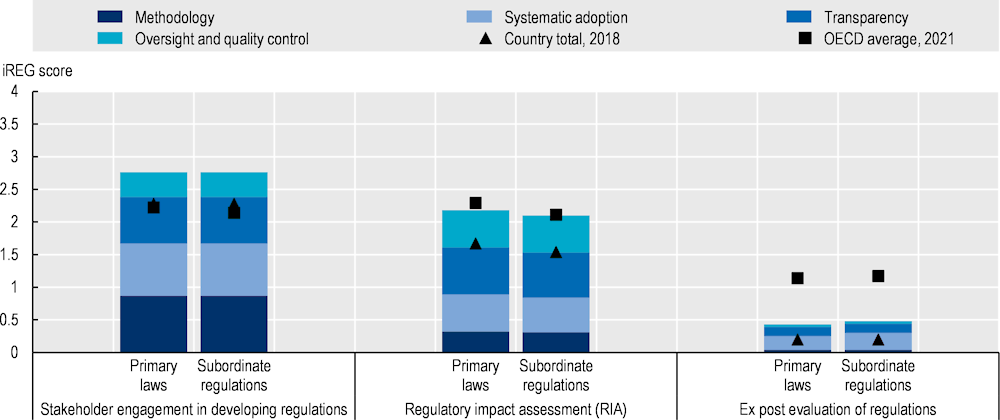Latvia has recently made several substantive reforms building on its existing regulatory policy framework. The obligation to conduct regulatory impact assessment (RIA) was introduced in 2009. RIA is required for all draft legal acts including subordinate regulations submitted to the Cabinet. RIA should be prepared early in the policy-making process and undergoes public consultation with the draft law. The impacts assessed cover mainly financial, budgetary, and administrative costs, and broader environmental and social costs. Policy makers now have the benefit of guidance material to assist in the preparation of RIAs including in the identification of the baseline, various options, and cost-benefit analysis. Consideration should now be given to improving the quantification of impacts of draft legislation and policy documents, as well as enhancing capacities to conduct cost-benefit analysis.
There is a structured and systematic process for consulting with social and civil partners. Public consultations are now systematically conducted at a late stage of policy development and stakeholders benefit from having a broader range of supporting material to help focus their input in policy proposals. While early stage consultation initiatives exist for planning documents, the next step will be to institutionalise this more broadly. Reviews of regulatory stock are mostly focussed on administrative burdens. While there is no explicit programme on ex post evaluations, they are now required for some subordinate regulations and an evaluation of all policy documents conforming to the SDGs was recently conducted.
The main responsibilities for co-ordinating regulatory policy and promoting regulatory quality are divided among the Ministry of Justice and the State Chancellery. The Ministry of Justice issues opinions regarding draft legal acts and draft development planning documents drawn up by other institutions and provides methodological assistance in the development of draft laws and regulations including regular training of state administration personnel at the State Administration School. The Chancellery, through its Legal Department, focuses on compliance of each regulatory draft with the rules for drafting legislation, including the obligation to conduct impact assessment or requirements for stakeholder engagement. The assessment of the Ministry of Justice and the State Chancellery is binding for other ministries, which may be requested to revise their proposals accordingly. The Chancellery also co-ordinates the development and application of uniform rules of regulatory drafting including the impact assessment guidelines. In 2018, its mandate was expanded to include, among other functions, quality control of ex post evaluations and systematic evaluation of regulatory policy.


 All/■ Always/▲ Yes
All/■ Always/▲ Yes  Major/■ Frequently
Major/■ Frequently Some/■ Sometimes
Some/■ Sometimes Never/▲ No
Never/▲ No